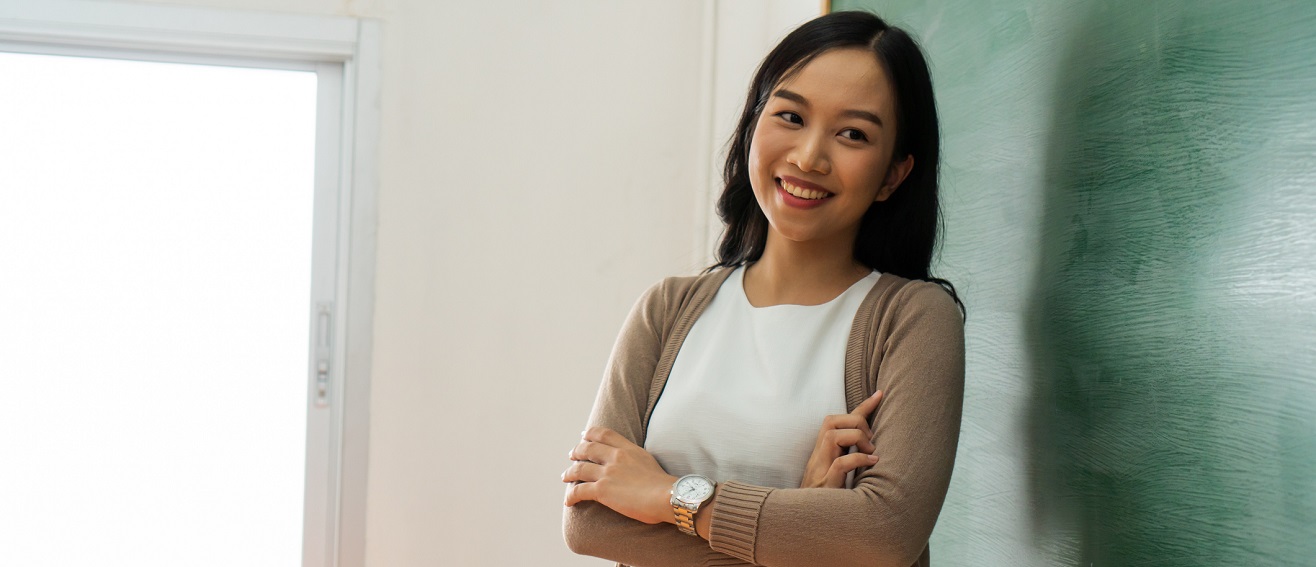
About the project
Find out more about the MGEMS project's aims and how it plans to impact on wider school culturesFunded by a British Council Going Global: Gender Equality Partnerships grant, the MGEMS project focuses on gender equalities in school teacher education in Vietnam. It aims to support new and existing teachers with the development of the knowledge, skills and confidence to encourage a new generation of young people to think critically about how ideas about gender structure the world around them and to re-imagine more equitable futures for themselves and their communities.
The core aim of MGEMS is to respond to the need to develop effective and engaging teacher education opportunities for new and existing teachers that facilitates:
- reflexive exploration of their own experiences of schooling and gender identity making and taking;
- critical examination of their own beliefs and values;
- exploration of the ‘hidden curriculum’ visible, bringing it into view and opening it up to examination;
- challenge to the ‘genderedness’ of resources and materials and encourages re-framing, critical discussion and production of resources that promote gender equality;
- new teachers to be inspired and enabled to confidently develop critical pedagogies that promote gender equalities in highly practical ways.
The MGEMS project will generate a range of creative and innovative learning encounters and resources that pay attention to experiences of schooling and open up discussions with new and existing teachers about voice, identity and learning. In so doing MGEMS will provide important opportunities for reflection on gender relations and the way they impact on access, participation (including discipline choices) and persistence in education as well as education outcomes, aspirations and post-school destinations. These conversations will be firmly located in local social and cultural contexts and afford departure points for participants to explore gender relations within their own schools, communities and, for existing teachers, workplaces.
MGEMS will also impact on the wider school cultures within which MGEMS alumni go on to work, whether as new or existing teachers. This has the potential to benefit significant cohorts of young people as they encounter teachers with more critical, research and evidence-based informed perspectives that challenge inequality and enable young people to understand themselves, their potential and their aspirations very differently. The inter-sectional nature of MGEMS will also provide new perspectives on the ways that gender inter-sects with disability, race and other social characteristics to open up wider discussions about structural inequalities and how they might be challenged.
Why MGEMS?
Vietnam demonstrated its serious commitment to addressing inequities when it launched the national strategy for gender equality for 2021–2030 and it is well established in the research literature that this reflects a long-standing obligation (Brundrett & Dung, 2018 and Dung & Brundrett, 2020) that is shared, at least at the policy level, by educators (Dung, 2015). However qualitative case study research undertaken in school settings has revealed a significant gap between policy aspirations and the everyday culture and practices of schooling.
Working across 4 primary schools in Ho Chi Minh City, Brundrett and Dung’s 2020 study found that gender equality remains a “problematic issue” with teachers demonstrating limited understanding of policy expectations or contemporary debates in gender equality and a prevalence of “gender bias towards the learning ability of boys and girls in different subjects.” This ‘hidden curriculum’ of values, attitudes and beliefs that patterns and frames the making and taking of gender identities in schools is a key theme in the literature and the role that teaching materials, particularly textbooks, play in constructing ideas about gender play is a common concern (Vu and Pham, 2021 and 2022).
Vu and Pham (2022) contend that teachers have the potential to be key agents of change if rather than generate complicity through lack of engagement they recognise and critique the “genderedness” they encounter in materials and texts in ways that open up and make space for alternative ways of thinking for young people. Do (2020) argues that challenging the status quo in this way creates the opportunity to build new cultural narratives for women’s rights recognition and enactment that might play a wider role in implementing sustainable development goal 4.